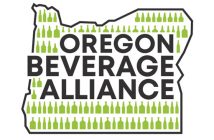The struggle is real with the business aiming for success as it requires a stimulating combination of taking some risks and eliminating the other. However, it is proven that a company cannot battle with every kind of trouble that follows through. So, how can an entrepreneur protect his business?
Life is unpredictable, and your business is no exception. You will come across many factors like pandemics, natural disasters, or even vandalism that could become a reason to jeopardize your business. The day an entrepreneur kick starts his business, he is acquainted with certain risks. Long before you even hire your very first employee, the company is at stake. It is where the insurances come into the rescue. Unforeseen circumstances may profoundly impact the company’s finances and operations, thus having the right insurance in place is essential. One catastrophic event or lawsuit could be enough to wipe out the business into thin air like it never even existed.
Lucky for you, companies have access to a wide range of insurance types to protect them against these dangers. What sort of insurance does your business need, though? What are the different types of business insurance, and why are they important? The answer to these is just a scroll away. Here are seven must-haves insurance types listed below.
- Employee Health Insurance
Based on the Bureau of Labor Statistics, large businesses usually offer health insurance to the employees as well as the government employers and mid-sized companies. Employees immediately sign up, even if they have to bear a portion of the premiums, which is also known as copayments.
This popular benefit can help improve morale, boost the employee, also act as an incentive for retention of employees, and encourage proactive health care. In case you are wondering, healthcare is a no deductible insurance, which might attract your employees and is an added benefit for them to show them that you care.
- A Worker’s Compensation Insurance
Workers’ compensation insurance provides injured employees with pays and replacement income for medical expenditures in case they fall in any sort of injury while on duty. Having this benefit, the employees do not have the right to sue the employer due to any work-related injury; it doesn’t matter who was at fault.
Workers’ compensation insurance is a protection act for you and your workers by giving them the surety that they would not be deprived of medical treatment and are being compensated for a workplace injury. It will save you from stressing over the lawsuits.
- Professional Liability
Professional liability, also known as errors and omissions (E&O) insurance, is mandatory for business owners engaging directly with the customers offering advice or services. Insurances like this protect your business from claims of performance failure, negligence, or not providing proper services.
Don’t know exactly how it works? Let’s take an example of a financial planner who is accused of giving a client a consultation that resulted in a loss of thousands of dollars. Or probably, a web developer hacks your web page by writing a code that could result in a loss of sales.
Professional liability or E&O will save the day by covering up the cost of damages in association with your declared losses due to your errors or negligence
- Property Insurance
As the name suggests, business property insurance will bear the cost to rebuild or repair the physical structures of your company. How? In case of a fire, theft, hail, wind, earthquake, smoke, or vandalism, the insurance company would have your back. Only buildings qualify for this kind of property insurance.
Sometimes property insurance comes in with a “business interruption” as a bonus feature by which you can gain back the lost income due to property damage. For example, if your factory is damaged due to a fire and only half the machines are in a working condition, the property insurance, along with a business interruption bonus would pay you to repair back your building and square accounts with you for income lost. At the same time, you can operate at half your standard capacity.
The high costs to replace or repair damaged business assets and property quickly triumph over a company. However, a business property policy with ample coverages offered can help protect your operations from unforeseen events. And with the additional business interruption, you can still have your earnings even if you have to temporarily shut down your business or operate your business at a lower or average capacity.
- General Liability
General liability insurance is a protection for your company in case of property damage, bodily injury, or other types of injury due to your business operations.
Some common examples can be a customer falls or slips in your store or a customer’s property is damaged say due to pollution or construction. In both cases, medical bills and repairs are an arm and a leg.
General liability covers settlement payments and legal costs that are given to the injured customer. However, general liability insurance may vary depending upon where you live. The amount the insurer will reimburse also depends on the maximum amount and the scope of the coverage mentioned in the policy rules. If you are thinking to wave it off by hiring lawsuits, bear in mind that they are often more expensive than the general insurance policy.
- Business Owner’s Insurance
A business owner’s policy or a BOP merges the most common types of liability and property insurance a business owner needs into one comprehensive, convenient, package at a very reasonable rate.
Small businesses usually buy this type of insurance. Larger enterprises and mid-markets tend to buy more complex insurance as per their needs and often end up purchasing different policies for each type of insurance.
A BOP can protect your company from significant damage, from property damage to customer falls. Since the insurance is a two for one package, a business owner’s insurance is often pocket-friendly rather than purchasing the two separately.
- Vehicle Insurance
The majority of the businesses drive around with their vehicles. Did you ever think of getting the business-use vehicles insured? If not, you might want to reconsider that. To avoid any sort of road accident, you need to ensure you are fully protected by vehicle insurance. Being a responsible entrepreneur, you must provide the safety of the third-party. However, the cost of the accidents would be paid by the comprehensive insurance as well. If an employee uses his own vehicle for official purposes, it would be the responsibility of the insurance company to cover up the costs in case he comes across an accident.
Conclusion
A business can easily avoid any unanticipated event or lawsuit legally if it is well protected under the umbrella of the right insurances. Discuss the pros and cons of every insurance plan with your insurer and pick the one that sounds right for your business.





